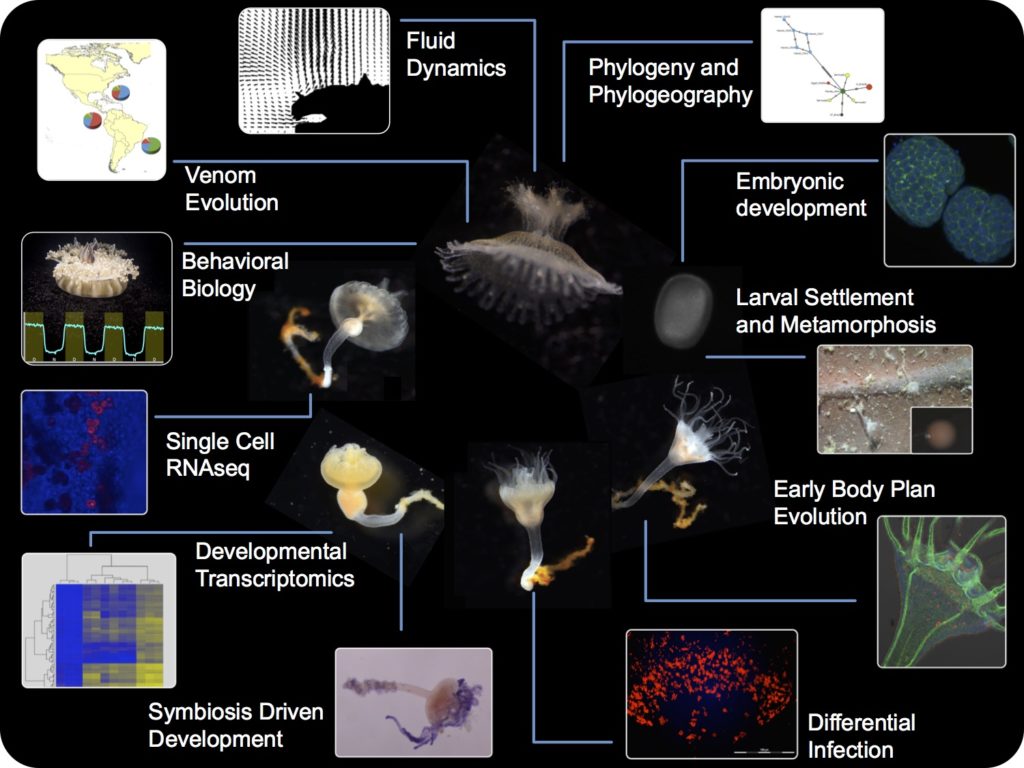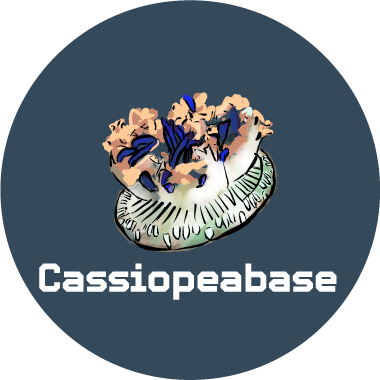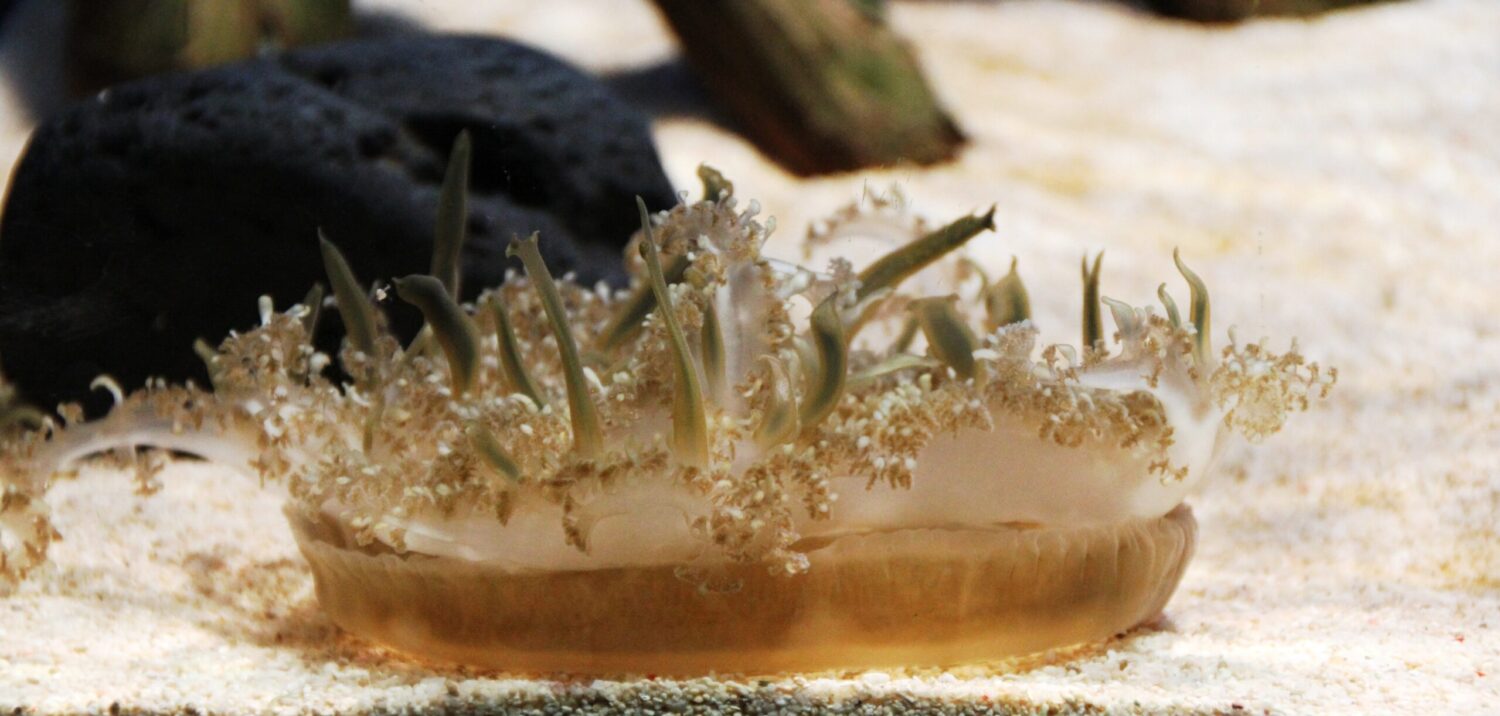Welcome to CassiopeaBase
Cassiopea sp. are a versatile and useful model for studying diverse aspects of biology. This portal provides resources for the community of researchers interested in using the Cassiopea system.
This portal is also the source for information and registration for the International Cassiopea Workshop, a gathering of researchers already working on or interested in working on the Cassiopea system. Held annually in Key Largo, one of the many global locations Cassiopea sp. are found, this event is a combination conference and workshop where scientists interested in conducting field research after the research presentations at the conference may stay and work at the Key Largo Marine Station.
What is Cassiopea?
As an easily culturable and tractable cnidarian model, it is an attractive alternative to stony corals to understanding the mechanisms driving establishment and maintenance of symbiosis
Ohdera et al. 2018
Cassiopea sp. (Scyphozoa: Rhizostomeae) are commonly known as the upside-down jellyfish. Residing in estuarine environments, these jellyfish tolerate a wide range of environmental conditions and undergo both sexual and asexual reproduction within a lab setting. They’re ideal model organisms for symbiosis, as Cassiopea require a symbiont to transition into adults and complete their life cycle. Besides their suitability for studying symbiosis-driven development, Cassiopea research has expanded to cover their roles in ecosystem development, embryology, and miRNA expression. On our portal we have included several citations for papers giving an introduction to this versatile system.


